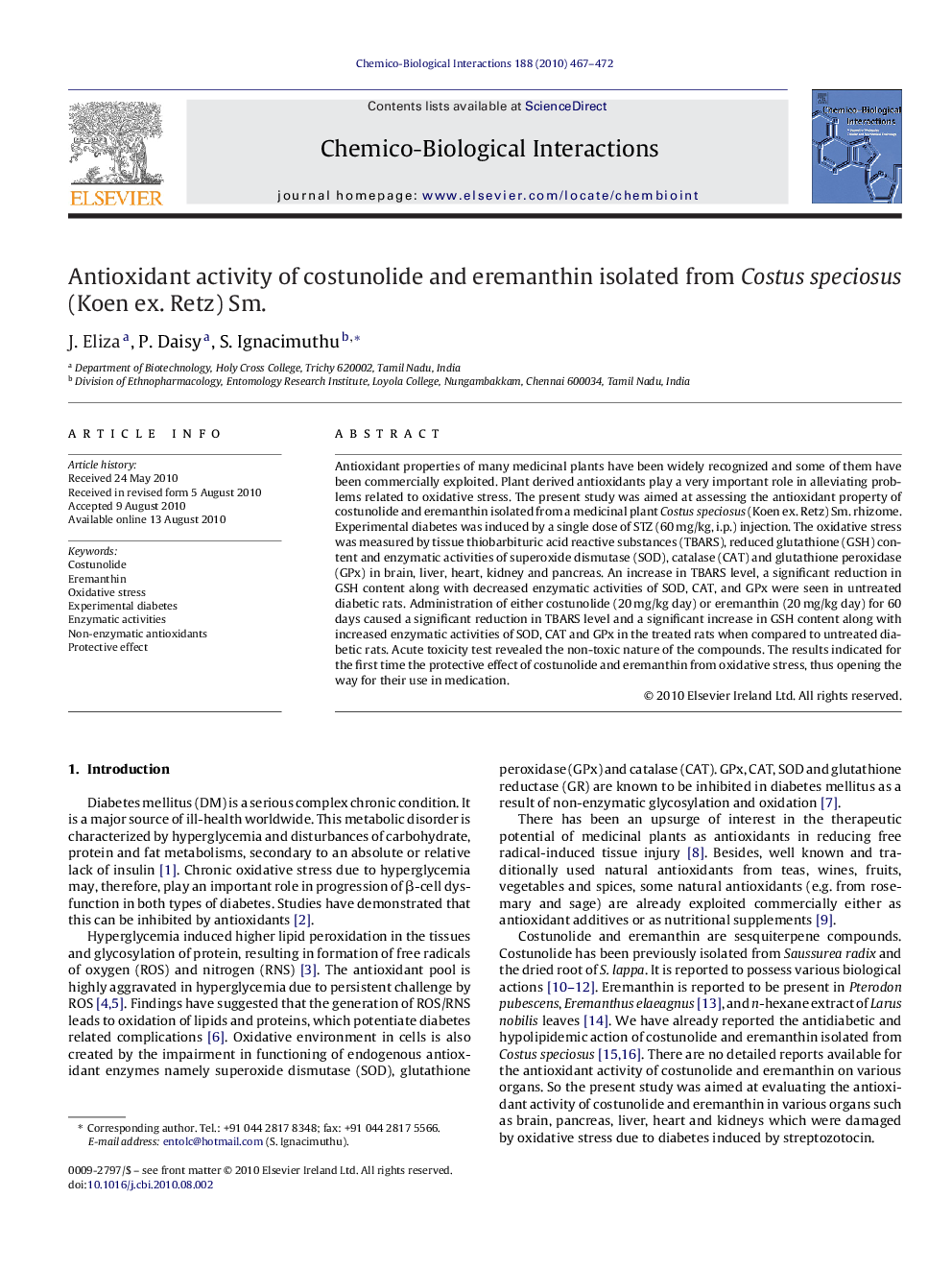| Article ID | Journal | Published Year | Pages | File Type |
|---|---|---|---|---|
| 2580954 | Chemico-Biological Interactions | 2010 | 6 Pages |
Antioxidant properties of many medicinal plants have been widely recognized and some of them have been commercially exploited. Plant derived antioxidants play a very important role in alleviating problems related to oxidative stress. The present study was aimed at assessing the antioxidant property of costunolide and eremanthin isolated from a medicinal plant Costus speciosus (Koen ex. Retz) Sm. rhizome. Experimental diabetes was induced by a single dose of STZ (60 mg/kg, i.p.) injection. The oxidative stress was measured by tissue thiobarbituric acid reactive substances (TBARS), reduced glutathione (GSH) content and enzymatic activities of superoxide dismutase (SOD), catalase (CAT) and glutathione peroxidase (GPx) in brain, liver, heart, kidney and pancreas. An increase in TBARS level, a significant reduction in GSH content along with decreased enzymatic activities of SOD, CAT, and GPx were seen in untreated diabetic rats. Administration of either costunolide (20 mg/kg day) or eremanthin (20 mg/kg day) for 60 days caused a significant reduction in TBARS level and a significant increase in GSH content along with increased enzymatic activities of SOD, CAT and GPx in the treated rats when compared to untreated diabetic rats. Acute toxicity test revealed the non-toxic nature of the compounds. The results indicated for the first time the protective effect of costunolide and eremanthin from oxidative stress, thus opening the way for their use in medication.
